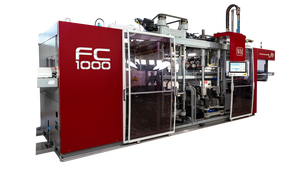Reverdia and Protea Chemicals, a division of Omnia, announced recently that they have entered into an exclusive strategic collaboration agreement to distribute Biosuccinium, the biobased succinic acid produced by Reverdia, in Africa and Australia. The agreement also extends to potential investment in and off-take from future Biosuccinium plants. The two companies will work closely together to develop the African and Australian markets for bio-succinic acid.
December 17, 2015
“Concluding this collaboration agreement with Protea Chemicals further develops Reverdia’s market globally. Protea Chemicals is a reputable and experienced chemical manufacturer and distributor in the African and Australian regions,” says Reverdia President Marcel Lubben. “Working in partnership is essential to mainstreaming the use of biomaterials and will enable consumers locally to develop downstream materials and application,” he added.
Reverdia is the joint venture between Royal DSM (Netherlands) and starch and starch-derivatives giant Roquette Frères (France). The company has operated a 10,000 metric tons/yr commercial plant for the production of succinic acid from renewable resources since December 2012, in Cassano Spinola, Italy. As the world’s first facility of this kind, the plant uses low-pH yeast technology to make its Biosuccinium. Reverdia has leased the technology since October 2014 to companies seeking to integrate biosuccinic acid production into their business offering, enabling competitive biobased materials.
South Africa-based Protea Chemicals, the chemicals division of Omnia, is a distributor of specialty, functional and effect chemicals and polymers in much of sub-Saharan Africa. The company operates from 21 sites located in all major industrial centers throughout Southern Africa, from Nairobi to Cape Town. It has extensive warehousing facilities and a distribution infrastructure and capacity across the African sub-region.
“Developing our portfolio of biobased solutions is a priority for Protea Chemicals. With the addition of Biosuccinium, we can offer the leading biosuccinic acid to our customers in the biopolymers, polyurethanes and coatings sectors to make their products truly sustainable,” says Jehiel Lawrence, Head of Business Management, Protea Chemicals.
Biosuccinic acid market outlook
Biobased succinic acid seems poised for take-off, if the latest figures from a report from Grand View Research are anything to go by. According to this report, the global market for bio-succinic acid is expected to reach USD 992.9 million by 2020, growing at a CAGR of 23.3% from 2014 to 2020. The recognition of succinic acid, as a potential platform chemical by the U.S. Department of Energy, has resulted in significant opportunities in replacement applications, particularly in maleic anhydride and adipic acid, for bulk volume industrial applications such as bioplastics, polyurethanes and engineering plastics.
BDO was the largest application market for biosuccinic acid, with estimated volume of 19,877.5 tons in 2013, expected to grow at an estimated CAGR of 38.3% from 2014 to 2020. Cost-effective biosuccinic acid would result in the substitution of maleic anhydride for the manufacturing of BDO and downstream derivatives such as GBL and PBT, which are extensively used in the engineering plastics industry. Polybutylene succinate (PBS) is expected to be the fastest growing application, at an estimated CAGR of 38.9% from 2014 to 2020, on account of increasing bioplastics demand, particularly in Europe and North America. Polyester Polyols was the second largest application market for biosuccinic acid, and accounted for 10.67% of global demand in 2013. The use of polyester polyols in the manufacturing of polyurethanes coupled with the growing demand for polyurethanes for downstream application industry is expected to be a major driver for biosuccinic acid market.
About the Author(s)
You May Also Like


